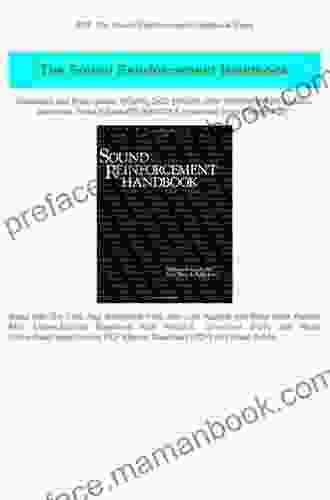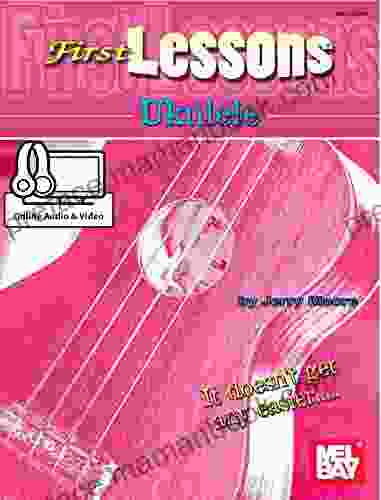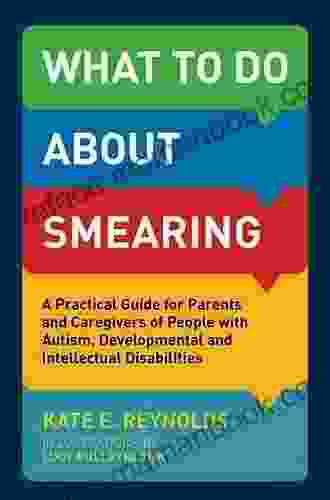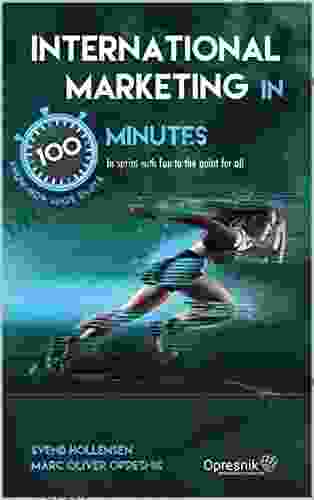A Comprehensive Guide for Parents and Caregivers of Individuals with Autism Spectrum Disorder

Autism spectrum disorder (ASD) is a neurodevelopmental disorder characterized by difficulties in social communication and interaction, as well as restricted and repetitive patterns of behavior. The diagnosis of ASD can be challenging, and parents and caregivers may feel overwhelmed and unsure about how to best support their loved one. This guide aims to provide practical information and strategies to help parents and caregivers navigate the complexities of raising a child with ASD.
Understanding Autism Spectrum Disorder
ASD is a spectrum disorder, meaning that individuals can have varying degrees of symptoms and may present with different combinations of behaviors. Common symptoms include:
4.4 out of 5
| Language | : | English |
| File size | : | 1094 KB |
| Text-to-Speech | : | Enabled |
| Enhanced typesetting | : | Enabled |
| Word Wise | : | Enabled |
| Screen Reader | : | Supported |
| Print length | : | 170 pages |
- Social difficulties, such as difficulty understanding social cues, forming relationships, and engaging in reciprocal conversations
- Communication challenges, including difficulties with spoken language, understanding figurative language, and using nonverbal communication
- Restricted and repetitive patterns of behavior, such as repetitive body movements, inflexible routines, and intense interests
- Sensory sensitivities, such as over- or under-reactivity to light, sound, touch, taste, or smell
It is important to note that ASD is not a disease but rather a neurodevelopmental condition. Individuals with ASD have different ways of thinking and learning compared to neurotypical individuals. They may have unique strengths and abilities, such as advanced memory, attention to detail, or artistic talents.
Diagnosis and Assessment
The diagnosis of ASD is typically made by a team of healthcare professionals, including a pediatrician, developmental psychologist, and speech-language therapist. Diagnosis typically involves:
- Observing the child's behavior and interactions
- Interviewing parents or caregivers about the child's history
- Administering standardized tests to assess cognitive and language skills
Early diagnosis is crucial for accessing appropriate interventions and services. If you suspect that your child may have ASD, it is important to seek professional evaluation as soon as possible.
Therapies and Interventions
There is no one-size-fits-all approach to treatment for ASD. Interventions are tailored to the individual child's needs and may include:
- Speech-language therapy to improve communication skills
- Occupational therapy to develop fine and gross motor skills, sensory processing, and activities of daily living
- Physical therapy to improve motor function, coordination, and balance
- Behavioral therapy to address challenging behaviors, such as tantrums or aggression
- Social skills training to teach appropriate social behaviors and improve peer relationships
- Medication may be prescribed to manage symptoms, such as hyperactivity or anxiety
It is important to work closely with a team of healthcare professionals to determine the most effective interventions for your child.
Educational Considerations
Children with ASD have unique educational needs. They may benefit from:
- Individualized Education Programs (IEPs) to provide tailored educational support
- Special education classes with smaller class sizes and specialized instruction
- Visual supports, such as schedules and visual aids, to help them understand and navigate their environment
- Sensory breaks to address sensory sensitivities and reduce stress
It is important to advocate for your child's educational rights and ensure that they receive the support they need to succeed in school.
Social Skills Development
Developing social skills is essential for individuals with ASD. Strategies to promote social skills development include:
- Social skills groups provide opportunities to practice social interactions in a structured environment
- Peer mentoring programs connect children with ASD with neurotypical peers who can serve as role models and provide support
- Play therapy allows children to learn social skills through imaginative play
- Home-based interventions provide parents and caregivers with strategies to support their child's social development
Supporting social skills development can help individuals with ASD build meaningful relationships and improve their overall quality of life.
Sensory Processing
Many individuals with ASD have sensory processing difficulties. They may be over- or under-reactive to sensory stimuli, such as light, sound, touch, taste, or smell. Sensory processing difficulties can impact daily functioning and lead to challenges in areas such as sleep, self-regulation, and social interactions.
Strategies to address sensory processing difficulties include:
- Sensory gyms provide a safe and supervised environment for children to explore different sensory stimuli
- Weighted blankets or vests can provide deep pressure input and reduce anxiety
- Sensory diets involve providing specific sensory activities throughout the day to help regulate the child's sensory system
- Occupational therapy can help children develop strategies to manage sensory sensitivities and improve sensory processing
Self-Advocacy and Empowerment
As individuals with ASD transition to adulthood, it is important to encourage self-advocacy and empowerment. Strategies to support self-advocacy include:
- Teaching them about their ASD diagnosis and strengths and challenges
- Providing opportunities for them to make choices and express their preferences
- Encouraging them to ask for help when needed
- Supporting their involvement in self-advocacy groups or organizations
Empowering individuals with ASD to advocate for themselves can help them develop greater independence and improve their overall well-being.
Raising a child with ASD can be challenging, but with the right support and strategies, children and adults with ASD can live fulfilling and meaningful lives. This guide provides a comprehensive overview of the diagnosis, therapies, educational considerations, social skills development, sensory processing, and self-advocacy strategies that can help parents and caregivers navigate the journey of supporting a loved one with ASD.
4.4 out of 5
| Language | : | English |
| File size | : | 1094 KB |
| Text-to-Speech | : | Enabled |
| Enhanced typesetting | : | Enabled |
| Word Wise | : | Enabled |
| Screen Reader | : | Supported |
| Print length | : | 170 pages |
Do you want to contribute by writing guest posts on this blog?
Please contact us and send us a resume of previous articles that you have written.
 Top Book
Top Book Novel
Novel Fiction
Fiction Nonfiction
Nonfiction Literature
Literature Paperback
Paperback Hardcover
Hardcover E-book
E-book Audiobook
Audiobook Bestseller
Bestseller Classic
Classic Mystery
Mystery Thriller
Thriller Romance
Romance Fantasy
Fantasy Science Fiction
Science Fiction Biography
Biography Memoir
Memoir Autobiography
Autobiography Poetry
Poetry Drama
Drama Historical Fiction
Historical Fiction Self-help
Self-help Young Adult
Young Adult Childrens Books
Childrens Books Graphic Novel
Graphic Novel Anthology
Anthology Series
Series Encyclopedia
Encyclopedia Reference
Reference Guidebook
Guidebook Textbook
Textbook Workbook
Workbook Journal
Journal Diary
Diary Manuscript
Manuscript Folio
Folio Pulp Fiction
Pulp Fiction Short Stories
Short Stories Fairy Tales
Fairy Tales Fables
Fables Mythology
Mythology Philosophy
Philosophy Religion
Religion Spirituality
Spirituality Essays
Essays Critique
Critique Commentary
Commentary Glossary
Glossary Bibliography
Bibliography Index
Index Table of Contents
Table of Contents Preface
Preface Introduction
Introduction Foreword
Foreword Afterword
Afterword Appendices
Appendices Annotations
Annotations Footnotes
Footnotes Epilogue
Epilogue Prologue
Prologue Ines Bridges
Ines Bridges Lydia St Giles
Lydia St Giles Tracey Taylor
Tracey Taylor James Umber
James Umber Clint Smith
Clint Smith Jacques Antoine
Jacques Antoine Jonathan Fields
Jonathan Fields Stacy Overby
Stacy Overby Don Casey
Don Casey Yoon Ha Lee
Yoon Ha Lee Annie Martin
Annie Martin Nana Jokura
Nana Jokura Charles Martindale
Charles Martindale A L Reynoso
A L Reynoso Kara B Imle
Kara B Imle Alaina Marks
Alaina Marks Jon Messenger
Jon Messenger Molly Ann Wishlade
Molly Ann Wishlade Chloe Maine
Chloe Maine Cheryle R Hart
Cheryle R Hart
Light bulbAdvertise smarter! Our strategic ad space ensures maximum exposure. Reserve your spot today!

 Italo CalvinoDarwin Lacroix Adventure: An Archaeological Thriller That Will Keep You on...
Italo CalvinoDarwin Lacroix Adventure: An Archaeological Thriller That Will Keep You on...
 Robert Louis StevensonThe Ultimate Guide to Writing a Short Story Prequel: Unlock the Power of...
Robert Louis StevensonThe Ultimate Guide to Writing a Short Story Prequel: Unlock the Power of...
 E.M. ForsterExploring the Alluring World of Gacha Girls Corps Vol Manga: A Comprehensive...
E.M. ForsterExploring the Alluring World of Gacha Girls Corps Vol Manga: A Comprehensive... John Dos PassosFollow ·16.8k
John Dos PassosFollow ·16.8k Liam WardFollow ·8.7k
Liam WardFollow ·8.7k Jorge Luis BorgesFollow ·16.3k
Jorge Luis BorgesFollow ·16.3k Glenn HayesFollow ·3.2k
Glenn HayesFollow ·3.2k Philip BellFollow ·7.7k
Philip BellFollow ·7.7k Dion ReedFollow ·13.2k
Dion ReedFollow ·13.2k George HayesFollow ·18k
George HayesFollow ·18k Pete BlairFollow ·11.6k
Pete BlairFollow ·11.6k

 Vincent Mitchell
Vincent MitchellUnveiling the Enchanting Tale of Plant Reproduction: A...
Plants, the silent yet vibrant...

 Sam Carter
Sam CarterDelve into the Enigmatic World of "Relative Murder: A...
In the realm of mystery and suspense, the...

 Richard Simmons
Richard SimmonsThe Sound Reinforcement Handbook: A Comprehensive Guide...
In the realm of live sound engineering, The...

 Leo Tolstoy
Leo TolstoyEnter the New Era of Cyberwar: Unmasking the Kremlin's...
`` Prologue: The Digital...

 Brenton Cox
Brenton CoxFirst Lessons Ukulele Bridget Baker: A Comprehensive...
Embarking on a musical journey with the...
4.4 out of 5
| Language | : | English |
| File size | : | 1094 KB |
| Text-to-Speech | : | Enabled |
| Enhanced typesetting | : | Enabled |
| Word Wise | : | Enabled |
| Screen Reader | : | Supported |
| Print length | : | 170 pages |








